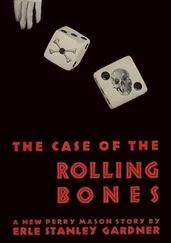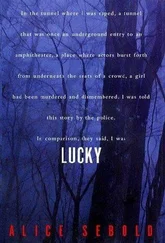Occasionally one of the tour guides or teachers would notice him standing there, unfamiliar even if amiable, and he would be met with a questioning stare. He had a thousand lines to give them: “I used to bring my children here.” “This is where I met my wife.” He knew to ground whatever he said in connection to some imagined family, and then the women would smile at him. Once an attractive, heavy woman tried to engage him in conversation while the park guide told the children about the winter of 1776 and the Battle of the Clouds.
He had used the story of widowhood and talked about a woman named Sophie Cichetti, making her his now-deceased wife and true love. It had been like luscious food to this woman, and, as he listened to her tell him about her cats and her brother, who had three children, whom she loved, he pictured her sitting on the chair in his basement, dead.
After that, when he met a teacher’s questioning glare he would shyly back off and go somewhere else inside the park. He watched mothers with their children still in strollers walk briskly along the exposed paths. He saw teenagers who were cutting school necking in the uncut fields or along the interior trails. And at the highest point of the park was a small wood beside which he sometimes parked. He would sit in his Wagoneer and watch lonely men pull up beside him and get out of their cars. Men in suits on their lunch hour or men in flannel and jeans would walk quickly into that wood. Sometimes they would cast a look back in his direction – an inquiry. If they were close enough, these men could see, through his windshield, what his victims saw – his wild and bottomless lust.
On November 26, 1974, Lindsey saw Mr. Harvey leaving the green house, and she began to hang back from the pack of running boys. Later she could claim she had gotten her period and all of them would hush up, even be satisfied that this was proof that Mr. Dewitt’s unpopular plan – a girl at regionals! – would never work out.
I watched my sister and marveled. She was becoming everything all at once. A woman. A spy. A jock. The Ostracized: One Man Alone.
She walked, clutching her side in a false cramp, and waved the boys on when they turned to notice her. She kept walking with her hand on her waist until they turned the corner at the far end of the block. At the edge of Mr. Harvey’s property was a row of tall, thick pines that had been left untrimmed for years. She sat down by one of them, still feigning exhaustion in case any neighbor was looking out, and then, when she felt the moment was right, she curled up in a ball and rolled in between two pines. She waited. The boys had one more lap. She watched them pass her and followed them with her eyes as they cut up through the vacant lot and back to the high school. She was alone. She calculated she had forty-five minutes before our father would begin to wonder when she’d be home. The agreement had been that if she trained with the boys’ soccer team, Samuel would escort her home and have her back by five o’clock.
The clouds had hung heavy in the sky all day, and the late-fall cold raised goose bumps along her legs and arms. The team runs always warmed her, but when she reached the locker room where she shared the showers with the field hockey team, she would begin to shiver until the hot water hit her body. But on the lawn of the green house, her goose bumps were also from fear.
When the boys cut up the path, she scrambled over to the basement window at the side of Mr. Harvey’s house. She had already thought of a story if she was caught. She was chasing a kitten that she’d seen dart in between the pine trees. She would say it was gray, that it was fast, that it had run toward Mr. Harvey’s house and she’d followed it without thinking.
She could see inside to the basement, where it was dark. She tried the window, but the latch lock was pushed in. She would have to break the glass. Her mind racing, she worried about the noise, but she was too far along to stop now. She thought of my father at home, ever mindful of the clock near his chair, and took her sweatshirt off and balled it around her feet. Sitting down, she braced her body with her arms and then kicked once, twice, three times with both feet until the window smashed – a muffled cracking.
Carefully, she lowered herself down, searching the wall for a foothold but having to jump the final few feet onto the broken glass and concrete.
The room appeared tidy and swept, different from our own basement, where heaps of holiday-marked boxes – EASTER EGGS AND GREEN GRASS, CHRISTMAS STAR/ORNAMENTS – never made it back on the shelves my father had built.
The cold air from outside came in, and she felt the draft along her neck pushing her out of the shimmering semicircle of shattered glass and into the rest of the room. She saw the easy chair and a little table beside it. She saw the large alarm clock with luminous numbers sitting on the metal shelving. I wanted to guide her eyes to the crawlspace, where she would find the bones of the animals, but I knew, too, that regardless of drawing a fly’s eyes on graph paper and excelling that fall in Mr. Botte’s biology class, she would imagine the bones were mine. For this, I was glad she went nowhere near them.
Despite my inability to appear or whisper, push or usher, Lindsey, all alone, felt something. Something charged the air in the cold, dank basement and made her cringe. She stood only a few feet from the open window, knowing that she would, no matter what, be walking farther in and that she had to, no matter what, calm and focus herself to look for clues; but right then, for one moment, she thought of Samuel running ahead, having thought he would find her on his last lap, then running back toward the school, thinking he would find her outside, and then assuming, but with the first trace of a doubt, that she was showering, and so he too would be showering now, and then waiting for her before he did anything else. How long would he wait? As her eyes mounted the stairs to the first floor before her feet followed, she wished that Samuel were there to climb down after her and trace her movements, erasing her solitude as he went, fitting into her limbs. But she had not told him on purpose – had told no one. What she was doing was beyond the pale – criminal – and she knew it.
If she thought about it later, she would say that she had needed air and so that was what had gotten her up the stairs. Small flecks of white dust collected at the tips of her shoes as she mounted the stairs, but she didn’t notice them.
She twisted the knob of the basement door and reached the first floor. Only five minutes had passed. She had forty left, or so she thought. There was still a bit of light seeping in through the closed blinds. As she stood, again, hesitating, in this house identical to our own, she heard the thwack of the Evening Bulletin hit the stoop and the delivery boy ring the bell on his bike as he passed.
My sister told herself that she was inside a series of rooms and spaces that, gone through methodically, might yield what she needed, provide her the trophy she could take home to our father, earning her freedom from me that way. Competition always, even between the living and the dead. She saw the flagstones in the hall – the same dark green and gray as ours – and imagined crawling after me when she was a baby and I was just learning to walk. Then she saw my toddler body running delightedly away from her and into the next room, and she remembered her own sense of reaching out, of taking her first steps as I teased her from the living room.
But Mr. Harvey’s house was much emptier than ours, and there were no rugs to lend warmth to the decor. Lindsey stepped from the flagstones onto the polished pine floors of what in our house was the living room. She made echoes up the open front hall, the sound of every movement reaching back for her.
Читать дальше












